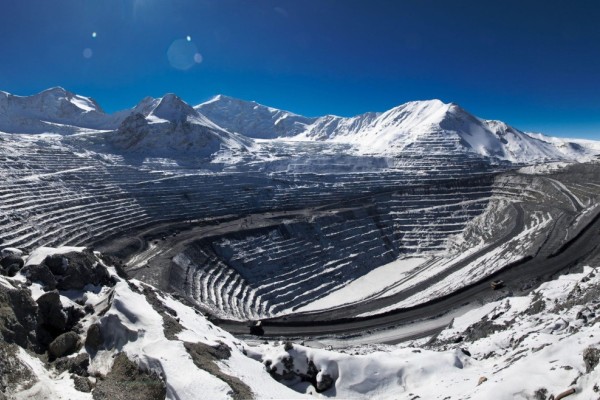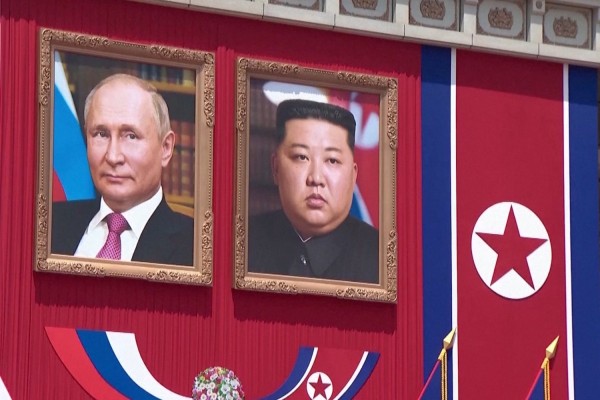-

Canada dismissed Kyrgyzstan’s environmental concerns as ‘pretext’ in mine dispute, documents reveal
When Kyrgyzstan nationalized a Canadian-owned gold mine over environmental damage, internal documents show Ottawa prioritized protecting Centerra Gold and investor interests over ecological concerns—framing the move as a threat to Canadian capital. The case highlights Canada’s broader role in shielding mining companies from accountability abroad.
-

Far-eastern promises
The Ukraine war is proving that the world is an interconnected place, as events there are influencing the balance of power elsewhere, including the Far-East. Western sanctions against Russia have, for instance, brought Russia and China closer together. Now, Russia is spreading its influence in the Pacific region, striking a further blow to US interests.
-

Has China really reached the end of its economic boom?
Western economists continue to argue that the Chinese economy is heading down the drain. As Michael Roberts argues, this critique is not factually correct, and it aims to distract attention from the reality that the Western capitalist economies (apart from the United States) are floundering in stagnation and near slump.
-

Lee Sun-kyun’s death is a reminder of the lie of South Korean liberalism
“China” is often the subject of Western ire, or at least the exaggerated “China” we’re sold by mainstream Western media, explains Jack Daniel Christie, but few in this part of the world ever turn their attention towards South Korea, a nation that seems to get by in the popular Western imagination with a cursory identification as a “liberal democracy.”
-

The inhumanity of Pakistan’s forced deportation of Afghan refugees
Canada recently passed a milestone by announcing the resettlement of more than 40,000 Afghan refugees since the Taliban recaptured Kabul in August 2021. Yet, with many applications still pending, the federal government has a moral responsibility to assist Afghan refugees who continue to flee the oppressive rule of the theocratic regime.
-

Fissures in the global order mean both risks and opportunities
Cracks in the US-EU alliance could mean political openings for the working classes living in the West as well as in Global South nations. In a world facing climate catastrophe, skyrocketing levels of inequality, the threat of more war and even a nuclear war, the costs of missing any such opportunity would be nothing short of tectonic.
-

The day the bubble burst: ‘Akira’ and Japan’s economic ‘miracle’
Katsuhiro Otomo’s legendary anime film Akira (1988) celebrated its 35th anniversary on July 15, 2023. As CD film critic Kalden Dhatsenpa writes, we should remember the movie as a towering achievement of cinema, a cultural landmark depicting the turbulent economic and social history of Japan at the peak of “the biggest asset bubble in history.”
-
_and_the_Peruvian_navy_landing_platform_dock_ship_BAP_Pisco_(AMP-156)_conduct_tactical_maneuvers_in_the_eastern_Pacific_Ocean_during_UNITAS_LXII._(51535611938)_600_400_90_s_c1.jpg)
In Latin America and Asia, Canada supports the US government’s new Cold War
Ottawa has conscripted itself to Washington’s new Cold War, which aims to challenge the economic influence of its geopolitical competitors around the world. In Latin America and Asia, writes Owen Schalk, Canada is once more showing its foreign policy to be spineless, little more than a reflection of the demands of Canadian capital and the US empire.
-

Canada and the new Cold War
As Owen Schalk and Henry Heller explain, given Ottawa’s increasingly belligerent actions in the Pacific, its growing military cooperation with states hostile to Beijing, and the openly antagonistic way Canadian officials discuss China, it seems that Canada wants to delink its economy from China’s in order to prepare for a direct military confrontation.
-
_600_400_90_s_c1.jpg)
South Korea pivots toward conflict
South Korean President Yoon Suk Yeol is rushing South Korea headlong into the middle of the new Cold War that the United States is waging against China. Yoon’s aspiration to position South Korea as a “global pivotal state” is turning the country into a bigger cog in the US war machine and stakes its security and economic future on a declining US-led global order.



